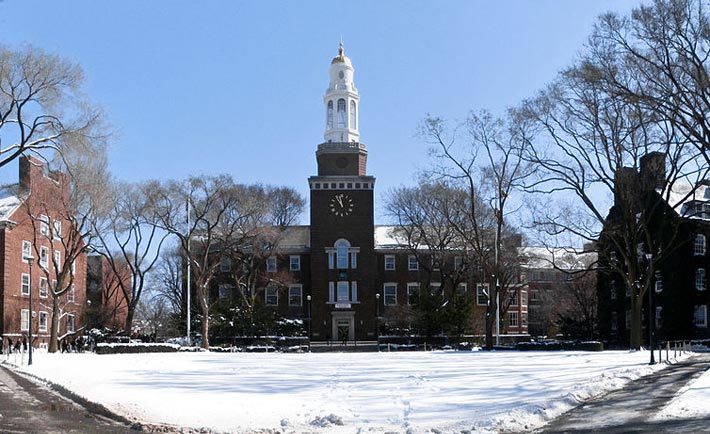It all started when I took out some anti-BDS (Boycott, Divestment and Sanctions) information sheets at a Brooklyn College-sponsored event last year that featured Omar Barghouti, the founder of the BDS movement. You’d expect that of any student opposed to the speaker’s anti-Israel views. I planned to challenge Barghouti by taking notes as he spoke and asking questions during the Q&A period. But I never got the chance to participate. A member of Students for Justice in Palestine (SJP), the event’s main organizer, had other plans. He had the view that this wasn’t the time or place to voice opposition, so I should either hand over my sheets or be kicked out. When I refused, he had City University of New York (CUNY) security officials escort me and two other yarmulke-clad students out of the event, no questions asked.
The following week, my name was synonymous with “First Amendment oppression.” My phone rang incessantly. Politicians wanted to speak to me and lawyers flooded my inbox with requests to advocate for my legal rights.
Yet I was a college senior. I should’ve been applying to graduate schools, finishing my honors thesis, and interviewing for jobs—not vetting law firms, bonding with politicians, and answering reporters. I was elbow deep in a controversy that was much bigger than myself, and while I began to realize that indeed a gross constitutional violation had been committed, I didn’t know enough to understand what I was entitled to and what consequences the courts could enforce against the violators.
Enter the Louis D. Brandeis Center for Human Rights Under Law. Like in my case, students are often unfamiliar with their rights. This ignorance can lead academic institutions to unlawfully restrict students. Ironically, academia should be the place where students feel safest to speak their minds. The Brandeis Center assisted me and the two other students, and Brooklyn College eventually apologized. The apology wasn’t personally important to me. But it was crucial to know that other students wouldn’t have to experience what I did.
Fast forward to today and, in less than two years, the situation has become more grim for Jewish students. There has recently been a dramatic spike in anti-Semitic incidents on campuses nationwide. In fact, more than 40 percent of Jewish American college students report that they have experienced or are aware of anti-Semitism on their campuses. Just this month, swastikas were drawn on two fliers posted at Northeastern University to publicize a lecture by an Israeli military official. Last month, a Jewish student at Claremont University had his Israeli flag and mezuzah ripped off his dorm room. A month before that, a Jewish student at Temple University was punched in the face, knocked down, and called “baby-killer, racist, Zionist pig” by a fellow student. Last spring, SJP at Vassar College republished a vile anti-Semitic Nazi cartoon. Around that same time at the University of Michigan, anti-Israel student activists hurled death threats at a Jewish student and called him “dirty Jew” and “kike.” And these examples cover only roughly the past six months.
Back to New York, where Brooklyn College students still worry about SJP’s discriminatory practices on campus. A resolution against SJP’s unlawful behavior was never instituted. Concerns are voiced at CUNY John Jay and the CUNY Graduate Center, ranging from students’ fear to wear their yarmulkes on campus due to the recent anti-Zionism morphing into anti-Semitic chants, to the legality of a pro-BDS resolution vote being held on a Friday night to prevent Jews from vocalizing their side. At Fordham University, students are worried because a professor who vocalized opposition to the American Studies Association’s pro-BDS stance was investigated. Unfortunately, the list goes on an on.
This is why I recently founded a Brandeis Center chapter at Cardozo School of Law, where I am currently a student. We are proud to be part of a nationwide network of student-led Brandeis Center chapters in Boston, Charlottesville, Los Angeles, Minneapolis, Philadelphia, Saint Paul, and Washington, DC, that will participate in a wide range of activities to combat anti-Semitism and anti-Zionism on campus and to help victims. Some of the work includes providing pro-bono legal research and advocacy, working with university leaders on policies to protect Jewish students, and hosting speakers and events on a variety of civil rights and anti-Semitism issues.
Personally, I would like to focus on protecting freedom of speech. Both sides of the Arab-Israeli conflict have a right to be heard, but it’s about securing equal time and exposure for both sides of this complicated story. It’s about fact-based logic rather than sensational hatred-based rhetoric. Right now, especially in New York-based public institutions, the pro-Israel side is being drowned by its opponents. We must show that anti-Zionism is in fact anti-Semitism when one side’s position is stifled.
Jewish students have the right to feel safe on campus. They have the right to walk the halls wearing a yarmulke. They have the right to hang a mezuzah. They have the right to host pro-Israel events, and to speak freely about their support for Israel in the classroom and on the square. When he headed the U.S. Department of Education’s Office for Civil Rights, Brandeis Center President Ken Marcus took the first step by including protection against anti-Semitism under Title VI of the U.S. Civil Rights Act. But more must be done to ensure that universities comply with the law.
I know firsthand how distressing it is to be a victim of anti-Zionism that morphs into anti-Semitism. I will carry that passion of personal experience with me when helping other students. The Brandeis Center chapters give law students like me a chance to do our part.

